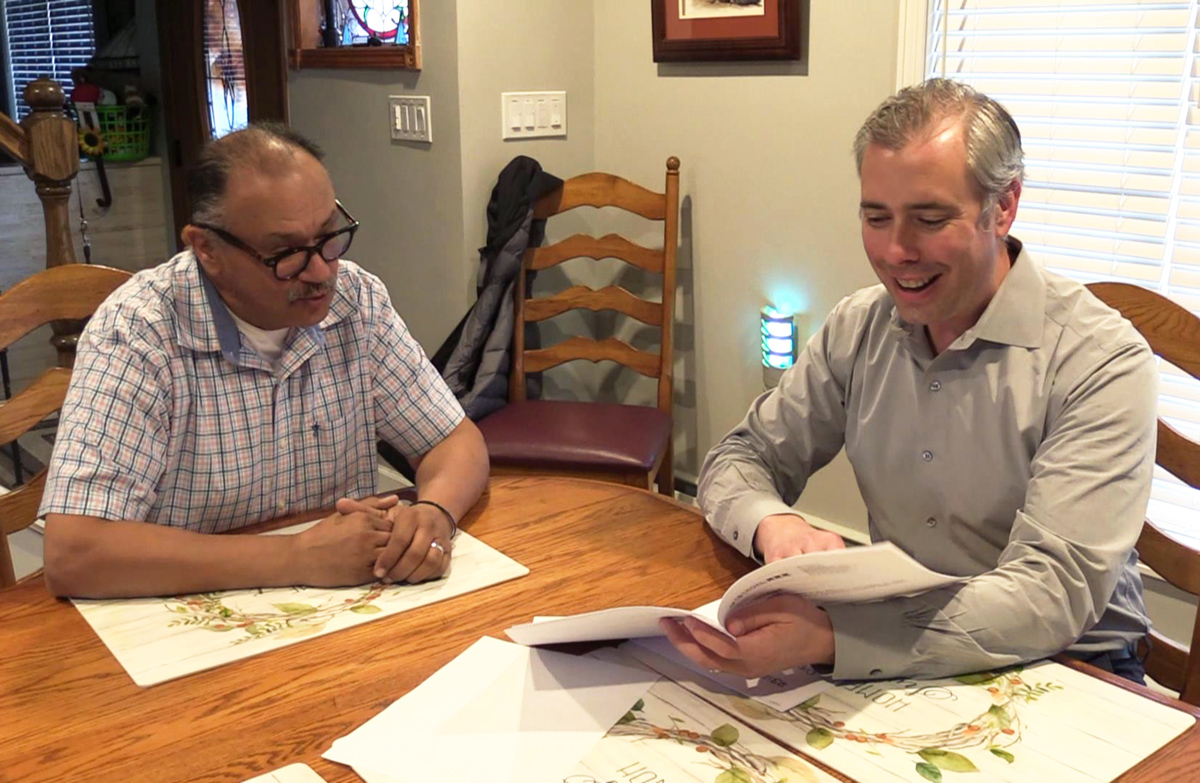Picture this, you’ve pulled up to the drive through window of your favorite fast food restaurant to receive your order. After your food is handed to you, what’s your next move? Do you inspect the contents of your bag and cross-reference it with your receipt? Or do you simply drive off and trust that everything is in there?
There’s no shame if you drive off without checking, after all, the food probably wasn’t that expensive. But when it comes to buying or selling a home, you should always do a home inspection. Not doing so could be a costly mistake!
It could be tempting to skip a home inspection in an effort to save time or money. They certainly aren’t free, and you may be looking to get into (or out of) your home ASAP. But trust us when we tell you that rushing the home inspection process is never a good idea! Let’s take a look at a few home inspection statistics…
Statistics on Home Inspections
- Nearly 20% of home inspectors found a problem with the roof
- 18.7% found at least one issue with the home’s electrical system
- 18.4% found problems with the home’s windows
- 13.6% discovered issues with the home’s plumbing systems
- 12.2% found issues with the water heater
Don’t take your chances! You might think you’re saving money by skipping a home inspection, but it’s likely that you’ll end up paying for it in the long run with endless repairs. Home inspections help you catch small problems early on before they become big problems.
Still not convinced? Read on to find out 23 Legal’s top 10 reasons you need a home inspection as a buyer and as a seller…
10 Reasons You Need a Home Inspection
Why Buyers Need a Home Inspection
- Safety Hazards: A poorly maintained home is susceptible to plenty of safety hazards. A home inspection can detect safety issues like carbon monoxide, mold, and radon. Buyers should verify that their home-buying contract has a clause that allows them to cancel their offer should safety hazards be discovered.
- Reveal Illegal Additions or Installations: If the home has an altered garage or basements that either violate code or were completed without the required permits, it affects the home insurance, property taxes, and overall value of the home. Also, once the buyer closes on the home, those illegal additions become the buyer’s financial problem to fix.
- Negotiating Tool: The home inspection report presents an opportunity to ask for repairs and/or request a price reduction or credit from the seller. Work with your realtor to understand what requests can and should be made to negotiate a better deal! If you need guidance on negotiating, ask Ben Weaver for tips!
- Forecast Future Costs: A home inspector can approximate the installation age of major systems in the home like plumbing, heating and cooling, and critical equipment like water heaters. They can diagnose the current condition of the structure itself, and tell you how long finishes have been in the home. All components in the home have a “shelf-life.” Understanding when they require replacement can help you make important budgeting decisions, and it will determine what type of home insurance coverage or warranties you should consider.
- Determine “Deal-Breakers”: Home inspections can help buyers identify how much additional money or effort they are willing and able to spend to take the home to a condition that is personally acceptable. If you are unwilling to repair issues like faulty gutters, cracked walls, or ceilings, perhaps you are not ready to end your home buying search. This is not the time to settle!
Why Sellers Need a Home Inspection
- Identify hidden problems: The home buyer will most likely hire a professional home inspector to check your home. As a seller, you can hire a home inspector to conduct a pre-inspection. This way, the homebuyer’s inspection shouldn’t have any surprises on it that you weren’t prepared for. When hidden problems are discovered by the homebuyer it will either scare them off or lower the value of your home.
- Deciding whether or not to make repairs: Once you have the inspector’s report, you have two choices: make the repairs or lower the sale price. When the repairs are small and relatively inexpensive, it’s a good idea to go ahead and get them done. Additionally, if it’s a big problem, like a leaky roof or a fire hazard, you also want to fix those because it means there are fewer problems to disclose to the buyer.
- Protection from legal action: In 1994, the Illinois legislature added seller disclosure obligations to the Illinois statutes. This means that when selling a home in Illinois, you must make certain disclosures to prospective buyers regarding the home’s physical condition. This includes code violations, environmental issues and more. These disclosures must be made prior to the sales contract. If they aren’t, the buyer has a case against the seller should they decide to sue the seller for hidden problems.
- You may be able to close faster: Getting ahead of repairs and knowing the issues before the homebuyer’s inspector finds them helps speed along the process of selling your home. Seller’s can get a head start on repairs with a pre-inspection, thus saving everyone time in the long run!
- You could list your home for more: If you decide to make repairs, it could increase the value of your home… putting more money in your pocket. Who doesn’t want that? Making sure your home is in top tip shape will increase your leverage in negotiations when there are new repairs.
Here’s what one of our clients had to say about working with attorney Ben Weaver:
“It was wonderful working with Ben and his team. They made buying our home a transparent and easy process.” – Client Testimonial
Read More 5 Star Reviews Here!

Trying to find a reputable home inspector in your area? Attorney Ben Weaver has the resources to help you find the right fit! He has experience in the Chicagoland area and can provide you with solid recommendations of trustworthy home inspectors. You can also search for local home inspectors on Yelp or Angie’s List.
Protect your investment by hiring professionals to inspect your home – whether you’re selling or buying. If you’re buying, use the inspection process as a negotiating tool. If you’re selling, use the inspection process to get a head start on potential problems before they arise.
As you can see, a home inspection is always a good idea before buying or selling!
Attorney Ben Weaver can facilitate the legal process of your real estate transaction and get you pointed in the right direction…
Contact us today: (847) 447-6004
Why Choose 23 Legal
23 Legal offers Real Estate and Estate Planning legal services to individuals, families, community associations and small business owners throughout Chicagoland. We know how intimidating “the law” can be. In fact, when most people think of law offices, they think of stuffy leather chairs, huge wooden desks and pompous lawyers who charge outrageous fees. That’s not us! We believe in 1-to-1; the same lawyer should work with you all the way through. Whether you have an estate planning issue, family trust concern, or you have a legal problem in regard to a new home, business, real estate or remodel, you need a lawyer who cares. That’s where Ben comes in! We are great listeners; more than that, we are lawyers who believe that our clients always come first.



